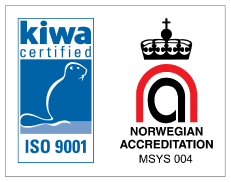Home / Egg donation – Oslo – Trondheim – Bergen – Stavanger
Egg donation without waiting period
Many women find that their egg quality is not good enough to get pregnant, or that their ovaries are not producing eggs. Fortunately, there is help.
Medicus is Norway's largest clinic when it comes to egg donation with services in Oslo, Trondheim, Bergen and Stavanger. We have helped many couples get pregnant with egg donation. Are you wondering if this is the path for you? Or are you ready to get started?
Here you will find everything you need to know about how egg donation works with us.
How the process works
Medicus is approved as a sperm and egg bank, which means that we recruit our own Norwegian donors. In addition, we cooperate with the Finnish egg bank. OvulationThis means that we have ample access to both Norwegian and Finnish donor eggs, and can offer a quick start with egg donation with us.

1. Conversation and preliminary investigations
After you have contacted us, the first step is a conversation. Here we conduct examinations and/or review previous investigations and treatments before we create a treatment plan and enter into an agreement for treatment. In addition, you must fill out a donor selection form. This normally happens within two weeks of your contact.
2nd hour for semen analysis
The next step is for us to arrange a time for the delivery of a semen sample, normally within a week of the first consultation. A blood sample and a urine sample are taken from the man at the same time to rule out infectious diseases. The semen sample is frozen at the laboratory the same day.
When using a donor from our own egg bank, the sperm sample is kept in tanks with us until we have found a suitable donor. If you want a Finnish donor, the frozen sperm sample will be sent to Ovumia in a tank of liquid nitrogen.

3. Donor search begins
Once the sperm sample has been delivered and frozen, we immediately start looking for a suitable donor. Based on the donor selection form that you have filled out during the first conversation, the search for a suitable donor begins, either internally at our own egg bank or at Ovumia.
4. Donor selection
The doctor at Medicus ultimately selects the appropriate donor for you, based on your physical characteristics. When choosing a Norwegian donor from our own egg bank, there is often little to no waiting time for the donor, but the waiting time will be affected by the desired physical characteristics. At Ovumia, the waiting time for the donor is normally 1-3 months after donor recruitment has started at Ovumia.
5. Eggs are fertilized
Once we have found a donor that suits you, the frozen sperm sample is thawed. The eggs are then fertilized using the ICSI method. The eggs are cultured until they are 5 days old, and develop into embryos. The embryos are then frozen. If you have chosen a Finnish donor, the embryos will be sent to us from the Finnish egg bank. When using a Norwegian donor, fertilization takes place at our clinics.

6. Embryo insertion
After the donor eggs have been fertilized and become embryos, we can plan the transfer. On the transfer day, you will meet at the clinic, and we will transfer one embryo back into the woman's uterus. The woman will receive preparatory hormone treatment so that the condition of the uterus is optimal for receiving an embryo.
7. Pregnancy test
After about 10 days, we will take a blood test that will determine whether you have become pregnant.
Why choose egg donation at Medicus?
-
Norway's largest egg donation clinic: When it comes to the number of egg donation treatments since it was allowed in Norway, Medicus has performed the most. This means that we have a lot of knowledge and experience with egg donation, and have helped many couples become pregnant with the help of donor eggs.
- Short to no waiting time: We have more donors than recipients, which means that for the vast majority, we have no waiting time for a donor and the start of treatment. This is of course somewhat dependent on the physical characteristics of the mother.
- Norwegian and Finnish donors: We recruit our own Norwegian donors, and we can also offer treatment with Finnish donors from our partner Ovumia in Finland.
- Blastocyst guarantee: If you do not get blastocysts on the first attempt, you will be given another attempt at no additional cost to you.
Frequently asked questions about egg donation
Egg donation treatment often leads to many questions about price, process and legislation. Below we have compiled some of the most common questions couples often have about egg donation. We have also created a very own guide on egg donation that takes you through everything you need to know about the process in detail.
Many women experience that their egg quality is not good enough to get pregnant, or that their ovaries are not producing eggs. The most common reasons for this are:
- genetics
- alder
- early menopause
- disease
If you have tried to get pregnant with in vitro fertilization, and your doctor sees that you will not succeed, egg donation may be the next step.
Unfortunately, there are still some who are not covered by the law. As the Biotechnology Act requires that the identity of one party must be biologically related to the child, single women or women in same-sex relationships cannot receive help through egg donation. An exception is if women in a same-sex relationship donate eggs to each other (ROPA).
It normally takes 0-6 weeks to be allocated a donor. Sometimes we have frozen eggs from a donor that can be thawed and used immediately, and other times we have to wait until the donor starts stimulation. The whole process therefore normally takes between 0-12 weeks.
See our price list for an overview of our prices.
Unfortunately, you can't. It is still not allowed to get donated eggs from family and friends, because the law requires that the donor be anonymous until the child is 15 years old. Only then can the child learn the identity of the donor.
Yes, she can. The law states that the child must have a biological connection to a parent, and in this case, it becomes the co-mother.
Similar to sperm donation, your doctor will select an egg donor for you. Once your sperm has been frozen, it is time to find a suitable donor. The donor is chosen based on the desired physical characteristics, and the mother's appearance should be taken into account. The doctor will ultimately select a suitable donor, ensuring that you receive genetic material that is as similar as possible to your mother.
The donor will be unknown to you, but cannot be anonymous. Therefore, the child has the right to know the donor's identity when they turn 15.
The number of eggs will vary somewhat for biological reasons, but you will usually get 2 good quality fertilized eggs (blastocysts). If you get pregnant on the first insertion, you can freeze the second blastocyst and possibly use it for a sibling attempt.
You also have the option to purchase multiple blastocysts from the same donor and save for sibling attempts – if you want your children to have the same donor.
There are some requirements for donors that increase the chance that the eggs will be of high quality, for example, that the woman must be between 25 and 35 years old. To qualify as a donor, she must undergo a fertility examination with blood tests and ultrasound to ensure good quality of the eggs.


